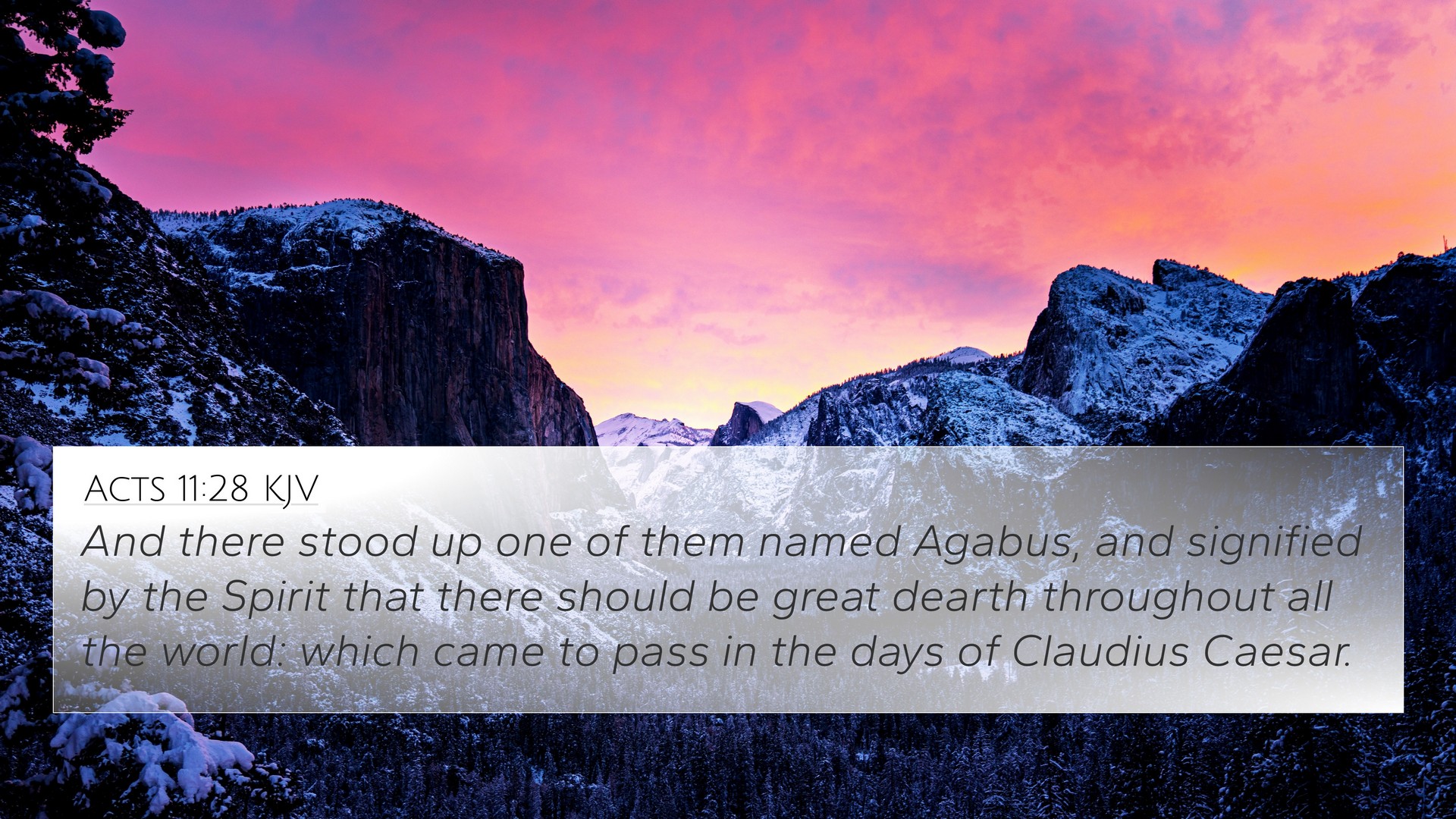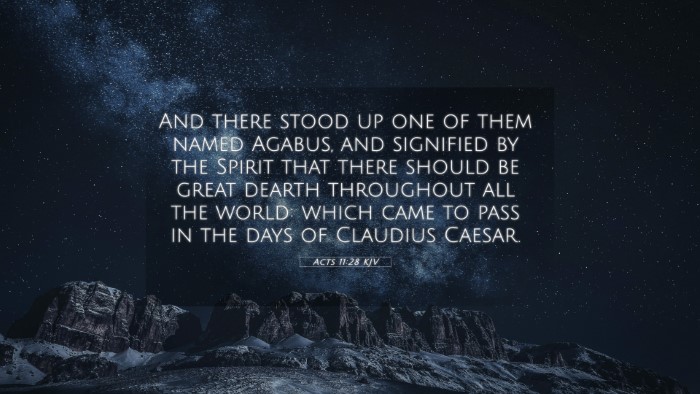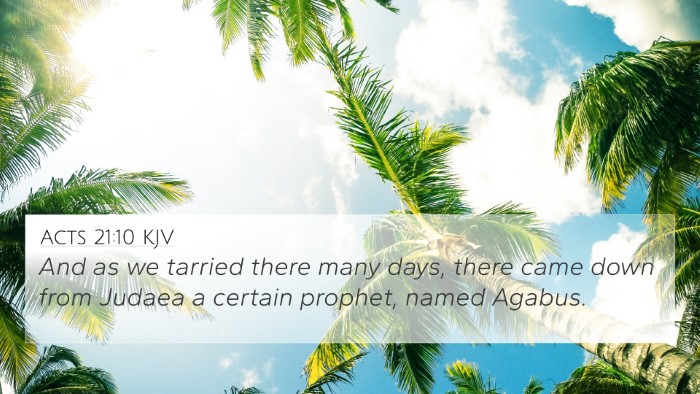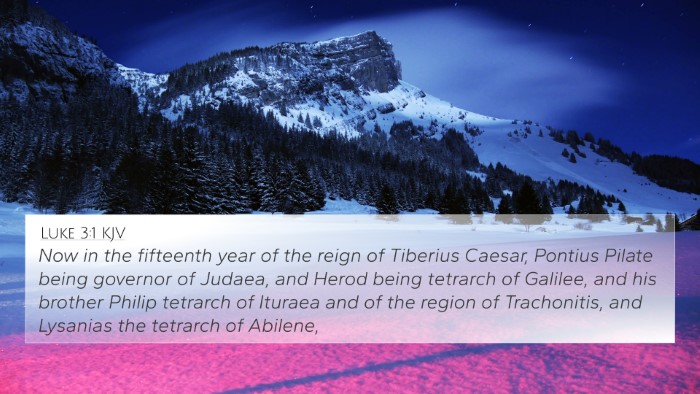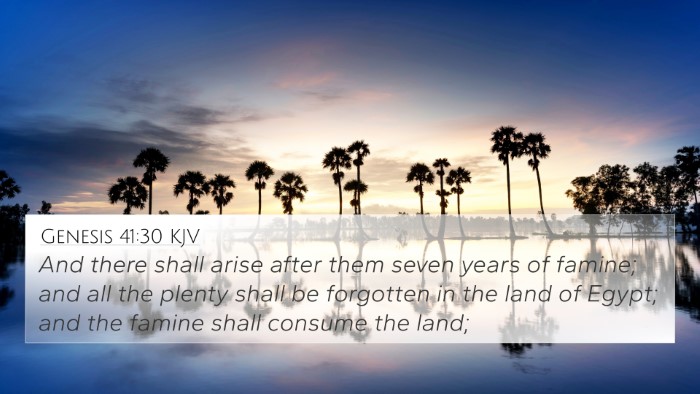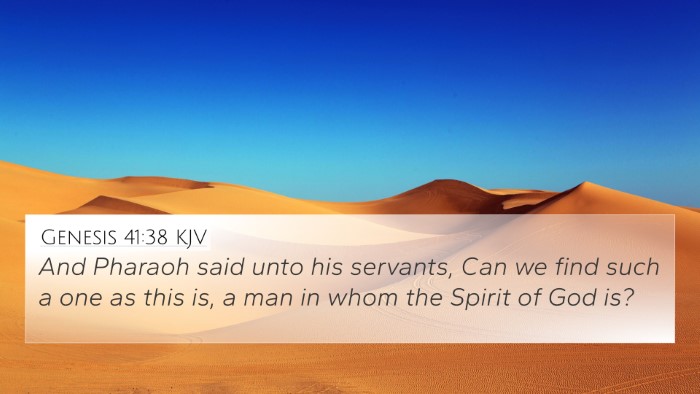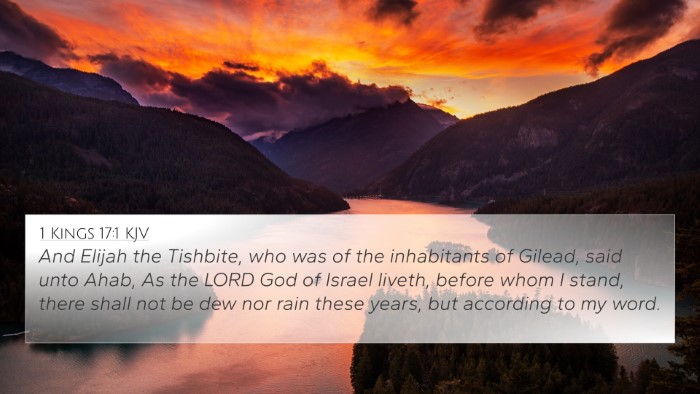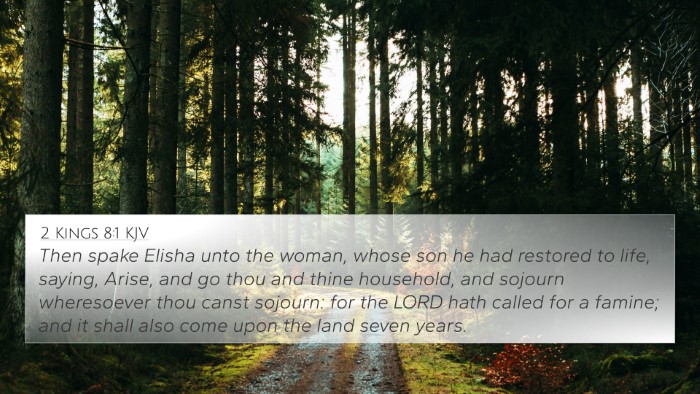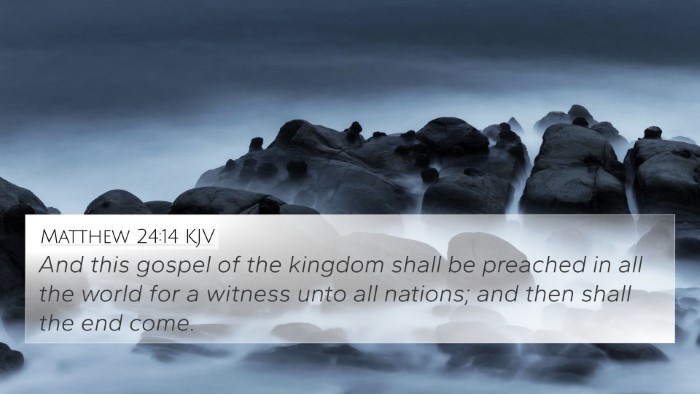Understanding Acts 11:28
Acts 11:28 states, "And there stood up one of them named Agabus, and signified by the Spirit that there should be a great dearth throughout all the world: which came to pass in the days of Claudius Caesar." This verse introduces the prophet Agabus within the context of the early Christian community and foretells of an impending famine.
Verse Context
This verse occurs in a significant narrative of the early church where the followers of Christ were beginning to understand their role in prophesying and caring for one another. The mention of Agabus highlights the presence of prophets in the Christian community who received divine revelations.
Key Themes
- Prophecy: Agabus's role as a prophet signifies the acknowledgment of divine communication with the church.
- Preparation: The warning of the famine serves to prepare the church for future hardship, emphasizing the importance of heeding prophetic messages.
- Community Support: In response to the prophesied famine, the early church created a system of support and aid for those in need.
Insights from Commentaries
Matthew Henry's Commentary
Matthew Henry elaborates on the significance of Agabus's prophecy, emphasizing that it was a divine warning meant to prepare the church. He notes that the famine's occurrence during Claudius Caesar's reign confirms the authenticity of Agabus's prophecy and reflects God's sovereignty in foretelling events. Henry also highlights the necessity of heeding such warnings and acting preemptively to provide for those in need.
Albert Barnes' Notes on the Bible
Albert Barnes provides a detailed analysis of the famine context, describing how this period of scarcity created significant challenges for the early Christians. He stresses the fulfillment of Agabus's prophecy as a testament to God's ability to communicate future events, and he notes that the famine would lead to significant actions within the church, prompting a sense of unity and support among believers.
Adam Clarke's Commentary
Adam Clarke focuses on the nature of Agabus's prophecy, interpreting it not just as a warning, but as an indication of the church's need for solidarity. Clarke discusses the importance of understanding prophecies and the response of the believers to the impending crisis, showcasing Acts 11:28 as a pivotal moment that would catalyze acts of charity and community strength.
Cross-References for Deeper Understanding
To expand on the themes of Acts 11:28, the following Bible verses offer relevant connections:
- Luke 4:25-27: Similar prophetic warnings about times of famine and need echo in the ministry of Jesus.
- Matthew 24:7: Jesus speaks of famines as part of the signs of the end times.
- 1 Thessalonians 5:20: Paul encourages the church to not despise prophecies, reinforcing the value of Agabus's message.
- Acts 21:10-11: Agabus also predicts Paul’s imprisonment, showcasing the consistency of prophetic voices within the early church.
- Romans 12:13: Paul emphasizes the importance of sharing and supporting one another in times of need, resonating with the community action prompted by Agabus's prophecy.
- Matthew 6:31-33: The teachings of Jesus about worry and reliance on God during times of scarcity are relevant as the church prepares for the famine.
- 2 Corinthians 8:14: Paul talks about equality in sharing resources, which is reflective of the church’s response to Agabus’s warning.
Connections and Themes
The examination of Acts 11:28 offers a profound opportunity to explore major Bible verse cross-references that highlight the interconnectedness of the scriptures. This verse serves as a bridge linking prophetic awareness from the Old Testament to its fulfillment in the New Testament, emphasizing the dynamic dialogue within the scriptures:
- Inter-Biblical dialogue: The present phenomena of prophecy and warning are traced back to themes found in the Hebrew prophets.
- Bible verse parallels: The responses of the early church modeled their understanding of mercy and preparation which can be compared to Old Testament case studies of famine responses, such as Joseph's preparations in Genesis 41.
- Identifying connections between Old and New Testament: The theme of divine warnings for future hardship is prevalent throughout scripture, from prophets like Isaiah to the early apostles.
How to Use These Insights
For those engaging in Cross-reference Bible study, the insights from Acts 11:28 can guide readers in understanding the broader narrative of the scriptures. Tools for effective study could include:
- Bible concordance: To identify related verses and themes.
- Bible cross-reference guide: Helps in diving deeper into thematic connections.
- Bible reference resources: To offer context and commentary on the verses that are cross-referenced.
Conclusion
Acts 11:28 not only provides a glimpse into the prophetic actions within the early church but also fosters a deep understanding of community, preparation, and reliance on God's wisdom. By cross-referencing and understanding the connections between scripture, believers can deepen their faith and prepare themselves for both spiritual and physical challenges in a manner akin to the early Christians.
